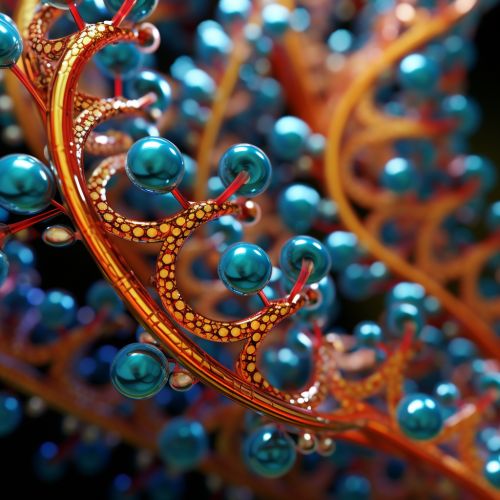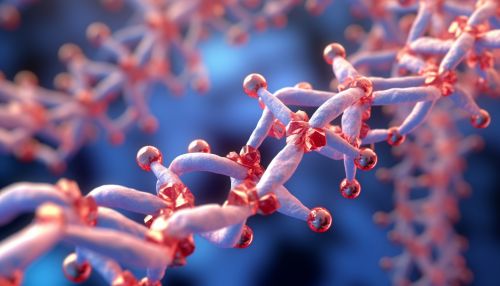RNA World Hypothesis and Early Life
Introduction
The RNA World Hypothesis is a widely accepted model that proposes RNA molecules were the first form of genetic material on Earth, predating the existence of DNA and proteins. This hypothesis is based on the unique properties of RNA, which is capable of both storing genetic information and catalyzing chemical reactions. The RNA World Hypothesis provides a plausible explanation for the origin of life, as it suggests a simple system from which more complex life could have evolved.


RNA: The Versatile Molecule
RNA, or Ribonucleic Acid, is a type of nucleic acid similar to DNA. However, unlike DNA, RNA is single-stranded and contains the sugar ribose instead of deoxyribose. RNA also contains the base uracil in place of thymine, which is found in DNA. The single-stranded nature of RNA allows it to fold into complex three-dimensional shapes, enabling it to perform functions beyond the storage of genetic information.
RNA is known to play multiple roles in modern cells, including the transmission of genetic information from DNA to the protein-synthesizing machinery of the cell, and the catalysis of certain biochemical reactions. The latter role is performed by a type of RNA known as ribozymes. Ribozymes are capable of catalyzing their own replication, a property that is central to the RNA World Hypothesis.
The RNA World Hypothesis
The RNA World Hypothesis was first proposed in the late 1960s by Carl Woese, Francis Crick, and Leslie Orgel. The hypothesis suggests that in the early stages of life on Earth, RNA molecules served as both genetic material and catalysts for biochemical reactions. This is in contrast to modern life, where DNA serves as genetic material and proteins serve as catalysts.
The RNA World Hypothesis is supported by several lines of evidence. First, RNA is capable of both storing genetic information and catalyzing chemical reactions, suggesting that it could have supported life in its early stages. Second, many of the most ancient and fundamental processes in cells, such as protein synthesis, are catalyzed by RNA. Finally, experiments have shown that RNA molecules can evolve in a laboratory setting, providing direct evidence for the evolutionary capacity of RNA.
Evidence for the RNA World Hypothesis
Several pieces of evidence support the RNA World Hypothesis. For example, the discovery of ribozymes, RNA molecules that can catalyze their own synthesis, provided strong support for the hypothesis. Additionally, the central role of RNA in protein synthesis, a process that is fundamental to all life, suggests that RNA was present at the dawn of life.
Furthermore, studies have shown that RNA can catalyze a variety of chemical reactions, including those necessary for the synthesis of proteins and other complex molecules. This suggests that RNA could have supported a simple form of life prior to the evolution of DNA and proteins.
Finally, laboratory experiments have demonstrated that RNA molecules can evolve to acquire new functions, providing direct evidence for the evolutionary capacity of RNA. These experiments involve the use of a technique called in vitro evolution, which allows scientists to observe the evolution of RNA molecules in a test tube.
Criticisms and Alternatives to the RNA World Hypothesis
Despite the evidence supporting the RNA World Hypothesis, it is not without its critics. Some scientists argue that the synthesis of RNA under prebiotic conditions would have been difficult. Others suggest that RNA is too unstable to have served as the first genetic material.
In response to these criticisms, several alternative hypotheses have been proposed. One such hypothesis is the Prebiotic Soup Hypothesis, which suggests that life originated from a mixture of organic molecules in the early Earth's oceans. Another alternative is the Panspermia Hypothesis, which proposes that life on Earth was seeded by extraterrestrial organisms.
Conclusion
The RNA World Hypothesis provides a compelling explanation for the origin of life on Earth. While it is not without its critics, the hypothesis is supported by a wealth of evidence, including the unique properties of RNA, the central role of RNA in cellular processes, and the ability of RNA to evolve in a laboratory setting. As such, the RNA World Hypothesis remains a central concept in the study of the origins of life.
